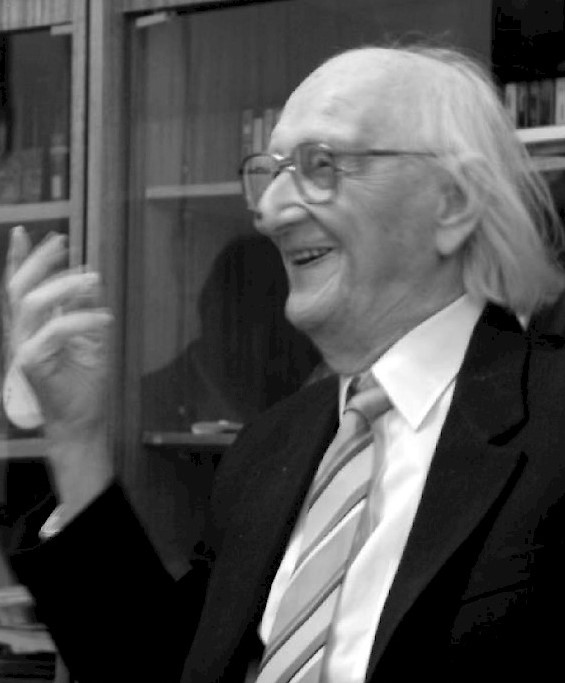Josef Burg
| Born: |
05-30-1912 |
| Faculty: |
Philosophical School |
| Category: |
Expelled student |
Josef BURG, born on May 30
th, 1912 in Wischnitz, Bukovina/Austro-Hungarian Empire [later Vijnita/Romania, today Wyschnyzja|Вижниця/Ukraine] (entitled residency ("heimatberechtigt") for Czernowitz, Bukowina/Austro-Hungarian Empire [later Cernăuți/Romania, today Чернівці Tscherniwzi/Ukraine], Citizenship 1938: Romania), son of Chune Burg (blue-collar worker, raftsman). He moved with his family to Chernivtsi|Cernăuți/Romania in 1924 and graduated from the teachers' seminary there at the Yiddish School Association. In 1934 he moved to Vienna to study at local University and lived with his aunt in the 2nd district, Rueppgasse 16/4. He was enrolled at the Philosophical School of the University of Vienna from 1934 to 1938 and studied German language and literature. He was last enrolled in the fall term of 1937/38 - now as an extraordinary student in the 1st year - working on his dissertation on "
Language and Purpose in Heinrich Heine" and attending lectures in History and Pedagogy.
In 1938, after the takeover of power of National-Socialism he was forced to quit his studies for racist reason and to leave the University of Vienna.
He had to flee from Vienna in 1938, and since an attempt to emigrate to England was unsuccessful, he went first to Prague/Czechoslovakia and then, in 1938, back to Czernowitz, then Romania, where he had been deprived of his Romanian citizenship as a Jew. After the invasion of the Red Army he remained in Czernowitz, but in 1941 he had to flee from the approaching German Wehrmacht to the Soviet Union.
Between 1940 and 1980 he was not able to publish, but rather worked as a German teacher in Saratov in the Volga German Republic, as a farm laborer in a collective farm in Tashkent, as a soldier in Central Asia, and after the end of the Second World War as a teacher of foreign-language literature at the Pedagogical College in Ivanovo near Moscow. There he met his future wife Nina Obolenskaya (1921-2007) in 1946 and later moved with her and their daughter to Stalingrad [Volgograd] and the Caucasus before returning to Chernivtsi, now part of Ukraine, between 1957 and 1959 as a German teacher and literary scholar. He and became intensively involved in preserving the memory of the almost forgotten Yiddish literature. His stories were published only from 1980 in the Yiddish magazine "
ssowetisch hejmland", which had been published in Moscow since 1961, and also in the USA, Israel and Poland. He was considered the last Yiddish writer of Czernowitz and wrote his stories, sketches and short stories in German and in Yiddish (in Hebrew script).
He was able to publish his first story in the journal "
tschernowizer bleter" in 1934, when he was still a student of German. The journal was forcibly discontinued in 1938 but was re-published by him as a Yiddish monthly from 1990 on. Between 1940 and 1980 he wrote "for the drawer" and was able to publish again from 1980. His works include
Dos Leben geit waiter. Derzeilungen, Nowelen, Skizen (1980);
afn tschermosch (
Auf dem Czeremosz, Bukarest 1939; German: Winsen 2005);
ssam (
Gift,
Cernăuți|Czernowitz 1940; German: Winsen 2005);
doss lebn gejt wajter (
Das Leben geht weiter, Moscow 1980);
iberruf fun zajtn (
Ueber die Zeiten hinweg, Moscow 1983);
a farschpetikter echo (
Ein verspaetetes Echo, Moscow 1990; German: Munich 1999);
Ein Gesang ueber allen Gesaengen (Leipzig 1988);
Sterne altern nicht (Winsen 2004);
Daemmerung (Winsen 2005);
Mein Czernowitz (Winsen 2006);
Begegnungen. Eine Karpatenreise (Winsen 2006);
Ueber jiddische Dichter (Winsen 2007) und zuletzt
Ein Stueck trockenes Brot (Winsen 2008).
Burg was awarded the Israeli
Segal Prize for Literature in 1992, the honorary title of
Meritorious Cultural Worker of Ukraine in 1993, the
Austrian Cross of Honor for Science and Art I. Class in 1997, and the
Theodor Kramer Prize a few months before his death in 2009.
On the initiative of Prof. Wendelin Schmidt-Dengler, an estate has been in the
Literary Archive of the Austrian National Library since 1997/1998.
Josef Burg died at the age of 97 on August 10
th, 2009 in Czernowitz|Tscherniwzi/Ukraine and is buried in the avenue of honor of the new municipal cemetery there.
Lit.: Archive of the University of Vienna/enrollment forms ("Nationale") PHIL 1934-1938; BOLBECHER/KAISER 2000, 130f.; BLUMESBERGER 2002, 188; POSCH/INGRISCH/DRESSEL 2008, 370; Theodor-Kramer-Prize 2009; Literature Archive/Austrian National Library; Thomas TRENKLER, Josef Burg im Interview, in: Kulturzeitschrift morgen 2009; Bukowina-Portal; Helene BELNDORFER, Josef Burg (1912-2009): Erinnerung an einen Freund, in: Chilufim. Zeitschrift für jüdische Kulturgeschichte 07/2009, 1–5; Raphaela KITZMANTEL, Die jiddische Welt von Gestern. Josef Burg und Czernowitz, Vienna 2012.
Herbert Posch
